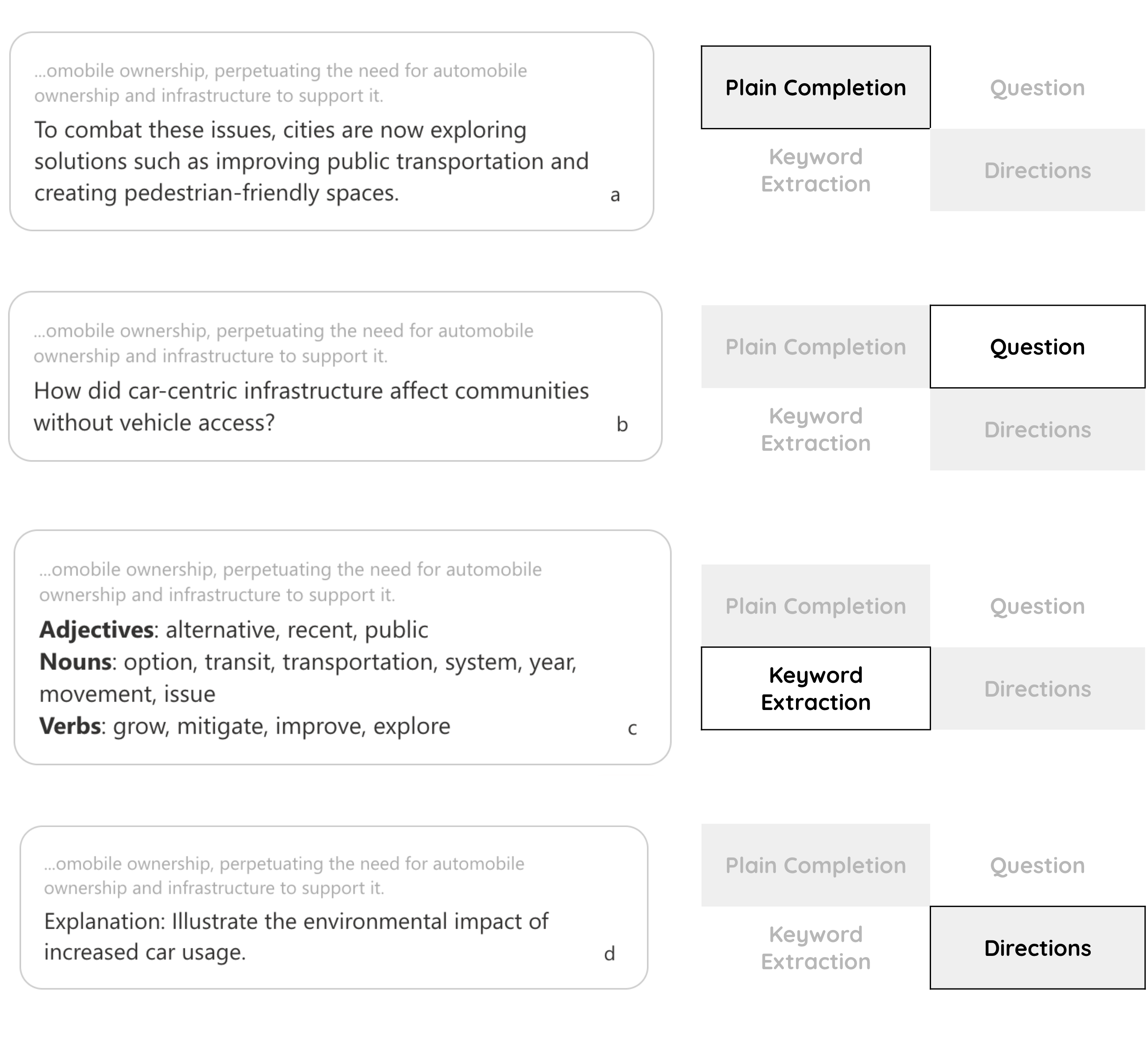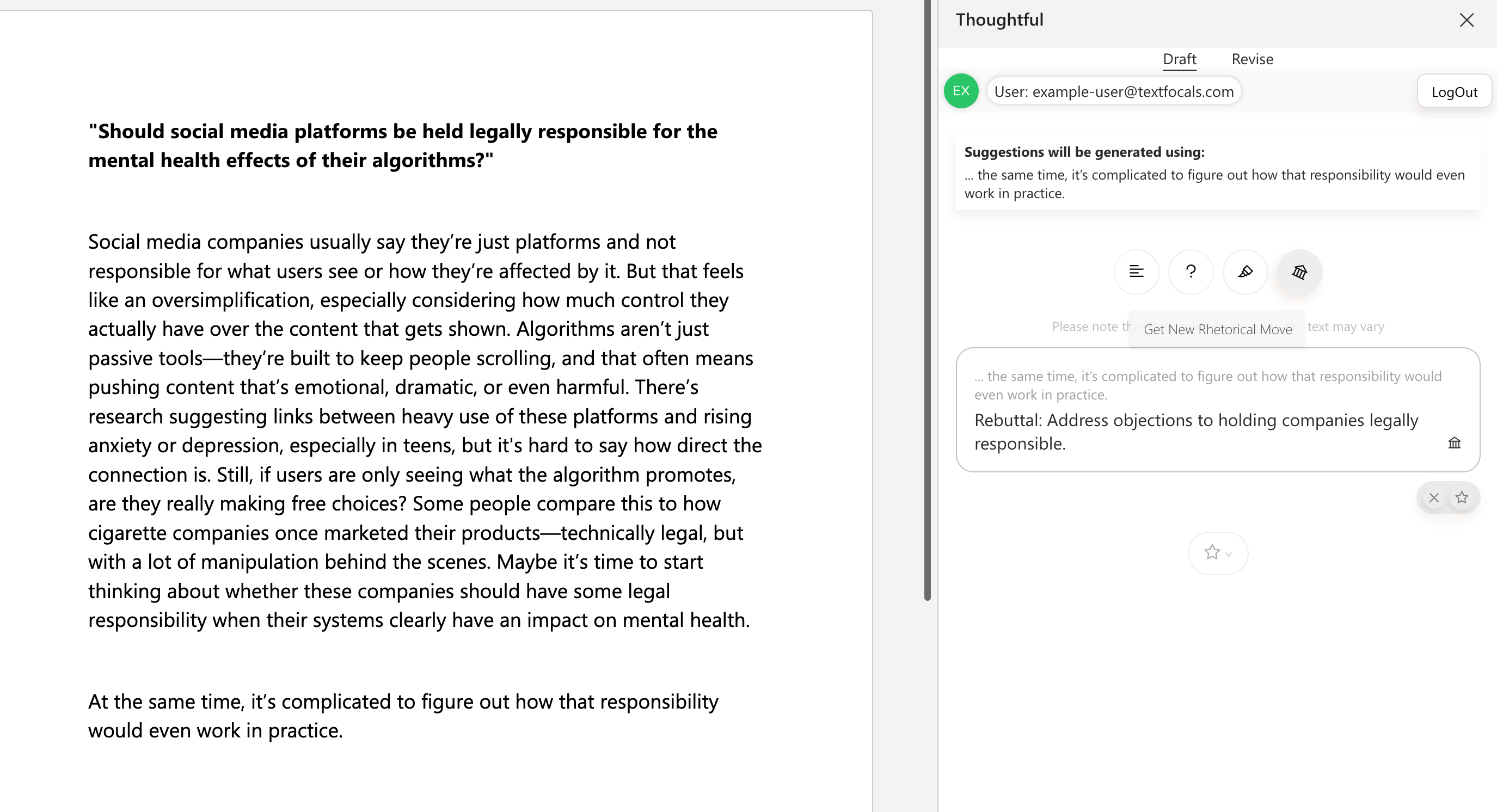Vision
Under the guidance of Dr. Ken Arnold, the Thoughtful AI lab conducts research into applications of large language models (LLMs) which enhance—but do not replace—the users’ writing. Our lab focuses on two categories of these applications: AI-generated feedback for the revision stage of writing and AI-generated recommendations for the drafting stage of writing.
From 2023-2025, we developed a Microsoft Word add-in to generate next-sentence suggestions at varying levels of semantic completeness. These suggestions were designed to correspond to multiple stages and substages of composition, thus facilitating engagement with the writing process at multiple levels. A user study with N=9 participants revealed that the single-sentence scale of the add-in's suggestions contributed to a more natural, recursive writing workflow. We have since deployed the add-in to the Microsoft Store, where it is available for all students and faculty at Calvin University to test.
For more context on our project, you can read our original project proposal here.Our primary research question:
- How might writers’ interactions with each of our suggestion types emulate the various stages of the writing process?
Approaches
Our Microsoft Word add-in offers next-sentence suggestions in four forms:
- Completion of a current thought: provides a single pre-written sentence
- A question about current/future writing: a question the writer could answer in the next sentence
- A list of possible vocabulary: vocabulary to use in the next sentence
- A rhetorical strategy to employ: directions on the kind of sentence to write, such as citing statistics, offering a personal anecdote, incorporating a counterargument, etc.

Demo
Outcomes
Our research led us to the following conclusions:
- The single-sentence scale of the add-in's suggestions contributed to heightened engagement with the writing process
- Writers prefer higher-order, conceptual suggestions over assistance with word-for-word articulation
- Question-type suggestions have the potential to provide higher-order assistance in a less prescriptive manner than plain-sentence completions
Our development team achieved the following outcomes:
- Published the add-in to the Microsoft Store
- Rebuilt/optimized internal functions for better performance, scalability, and integration of future functionality
- Created a separate custom editor with identical functionality for increased accessibility
Future Work
On the research end, we plan to:
- Finalize a follow-up study for the next generation of students in the Thoughtful AI Lab
- Seek publication of our results
On the development end, we hope the next generation of students in the Thoughtful AI Lab will:
- Further improve system robustness
- Improve UI/UX in collaboration with the research team
Our Team
Whether it be in code or in composition, Jason enjoys applying his syntactical skills across a variety of domains—a trait which has made him particularly interested in the intersection of AI and writing.
Daniel is passionate about human-computer interaction and designing intuitive user interfaces. Amidst the widespread proliferation of AI technologies, Daniel aims to develop AI-powered tools that are both useful and user-friendly.
Advisor for the Thoughtful AI Lab and its associated senior projects at Calvin University.
Associate researcher.
Associate researcher and developer.
Associate developer.
Associate researcher and developer.
